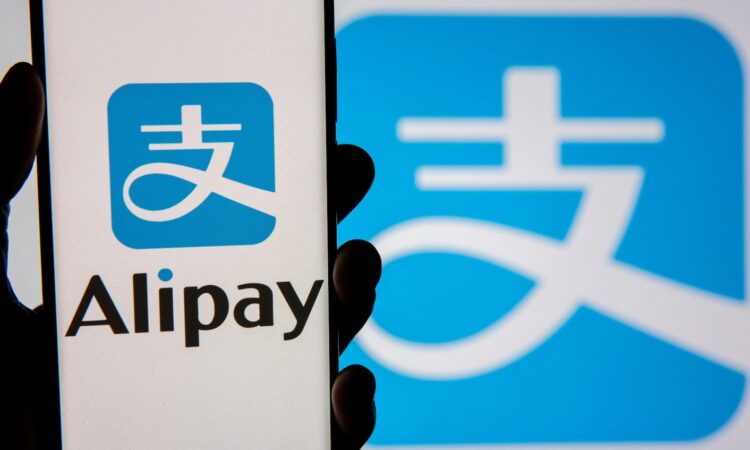
Today, China is ahead of the United States on almost every aspect of digital finance — including the creation of central bank digital currency — and it is eager for its super-apps to expand globally. In “The Cashless Revolution: China’s Reinvention of Money and the End of America’s Domination of Finance and Technology,” Chorzempa, now a senior fellow at the Peterson Institute for International Economics, explains how China’s fintech entrepreneurs grew so large so fast — and what happened when they became a threat to the Chinese state. Despite the hyperbolic subtitle, the book is an authoritative, comprehensive and thoughtful account of a remarkable episode in technology and finance that offers lessons for the United States as it seeks to encourage innovation in finance without putting consumer or financial stability at risk. It is written clearly enough for readers who are expert in neither finance nor Chinese politics. (Full disclosure: In reading the acknowledgments, I discovered that Chorzempa and I share an agent and an editor. I have not discussed this book with either.)
The first and last chapters of this book capture the essence of the story and may be sufficient for readers less interested in the blow-by-blow (and occasionally repetitive) account of the rise and fall of Alibaba’s Jack Ma and Tencent’s Pony Ma (who share a last name common in China and are not related). In short, big state-owned banks were run not for the benefit of savers or small borrowers but for the benefit of state-owned enterprises, which enjoyed low-interest loans. The banks had essentially no competitors until Alibaba (which launched Alipay) and Tencent (which owns WeChat), encouraged by the Communist Party leadership, built, as Chorzempa explains it, “a new financial model around super-apps that started with e-commerce, social media, and games and expanded into financial empires spanning payments, investments, and loans.” It was as potent an economic force as a merger of Facebook and Vanguard would be. The apps are so embedded in Chinese daily life that in 2020, a Guangdong court decreed that instead of prison, labor camps or fines, the convicted would remain free but face a five-year ban on using digital payments. That was deemed a sufficiently harsh punishment.
Chorzempa highlights several elements of the success of Alibaba (and its spinoff, Ant Group) and Tencent that are not widely appreciated in the United States. One is the important role of foreign investors (including Yahoo and U.S. venture capital firms). In the early days, foreign expertise also played a role, helping, for example, to introduce the QR codes originally developed by Japanese automakers for supply-chain tracking that are now so ubiquitous in China that beggars use them. A second factor is the opening created for the upstarts when China barred Visa and Mastercard to protect UnionPay, the stodgy Chinese credit card monopoly. This meant that, unlike Americans, the Chinese didn’t enjoy the usefulness of credit cards and thus were more open to another alternative to cash. Third, China’s economy has not been propelled exclusively through state subsidies and five-year plans but by law-bending entrepreneurs. “China,” Chorzempa writes, “is extremely messy, with rampant lawbreaking and a government with massive blind spots about what is going on in its economy and financial system, with tacit permission often given to blatantly illegal activities.”
Finally, there is the crucial role of Zhou Xiaochuan, a pro-market reformer who led the People’s Bank of China, the Chinese analog to the Federal Reserve, from 2002 to 2018. Zhou, as Chorzempa puts it, “invited big tech into finance to compete with state-owned banks and force them to shape up, realizing that simply ordering banks to become more innovative was bound to fail.” He made sure that incumbent financial institutions couldn’t use their political clout to block fintech’s disruptions to their monopolies.
This is not a happily-ever-after story, though. Peer-to-peer lending, largely unregulated, turned into a bubble that cost Chinese savers billions. Then, the Communist Party and financial regulators — Zhou among them — decided their efforts to bust up the banks’ monopoly had produced an even bigger one in the super-apps. In 2020, the government forced Jack Ma to cancel the initial public offering of his Ant Group. He resigned his post and has largely disappeared from public view. Regulation of the fintech giants was significantly tightened. And when the coronavirus pandemic hit, the government used the super apps to monitor the health and control the movements of Chinese citizens, illustrating just how much personal information the companies had made available to the government. (Chorzempa does, however, write that Chinese consumers have more control over how their data is used for credit scoring than Americans do).
What does all this mean for the United States? China illustrates how fostering competition can yield innovation and reduce costs to consumers and merchants. But it also shows the dangers of a siloed regulatory system that isn’t equipped to ensure fintech isn’t ripping off consumers, offloading risks on taxpayers, compromising citizens’ privacy or hiding egregious conflicts of interest. China, Chorzempa says, is a laboratory for the rapidly evolving world of fintech and how governments deal with it — and it has ambitions to dominate the global fintech market. We should learn from China as it once learned from us.
David Wessel is director of the Hutchins Center on Fiscal and Monetary Policy at the Brookings Institution. His most recent book is “Only the Rich Can Play: How Washington Works in the New Gilded Age,” the story of opportunity zones.
China’s Reinvention of Money and the End of America’s Domination of Finance and Technology
PublicAffairs. 320 pp. $29
A note to our readers
We are a participant in the Amazon Services LLC Associates Program,
an affiliate advertising program designed to provide a means for us to earn fees by linking
to Amazon.com and affiliated sites.






